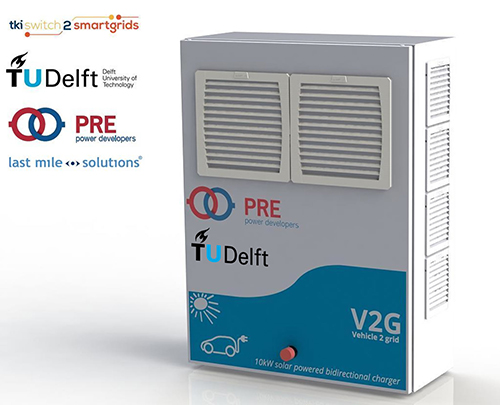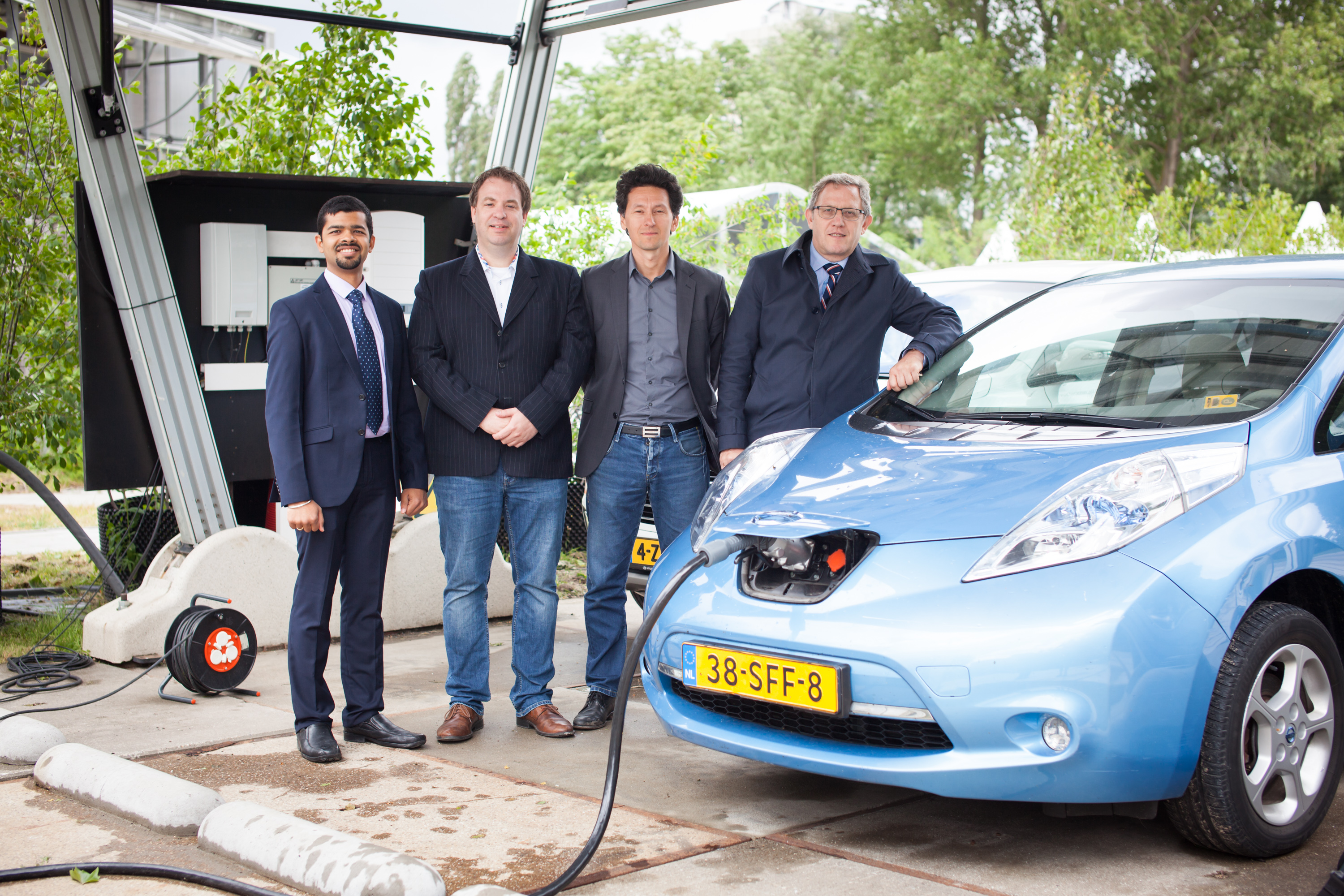Researcher Gautham Ram Chandra Mouli developed a system which charges electric cars quickly and directly using solar power. On Monday 26 March, he will be awarded his PhD at TU Delft for his work on this subject.
Electric cars are seen as the sustainable future of transport. But they are only truly sustainable if the electricity used to charge them comes from sustainable sources and not from fossil fuels.
This is why researchers and businesses are also looking into charging electric vehicles with solar panels. Based on Gautham Ram Chandra Mouli's doctoral research, TU Delft has developed a quick charger together with the companies Power Research Electronics and Last Mile Solutions which can charge cars directly with electricity from solar panels. The project is funded by the Dutch Urban Energy Top Consortium (TKI Urban Energy).
Direct current
Solar panels (PV) generate direct current (DC) and this normally had to be converted to alternating current (AC) before it could be used to charge an electric car. ‘Charging stations are currently using the 50Hz AC network to exchange power between the solar panels and the vehicle,’ explains Chandra Mouli. ‘However, this is not efficient or cost-effective, for two reasons. Firstly, converting to AC results in unnecessary steps and loss. And, secondly, it requires two separate DC-AC converters, one for the vehicle and one for the solar panels, resulting in increased costs and dimensions.’
Interim stage unnecessary
‘A more self-evident solution would be to use a single converter, which could charge the vehicle from the panels via a DC link while also being connected to the AC electricity grid. In this study, we therefore designed a 10kW converter with an internal DC link and three terminals, which can charge the vehicle both from the solar panels and the electricity grid. The integrated DC charger has a higher efficiency and is about three times smaller than existing solutions based on AC power exchange.’
The use of this charger means that the electricity grid is no longer needed as an interim stage in charging. In addition, the system works two ways: not only can you charge your electric car with solar power, the energy from the charged car battery can also be used to supply your house with electricity. Moreover, it is also possible to deliver electricity back to the grid, although this first requires conversion into alternating current.
‘The developed converter is used in a solar charging station, including smart charging algorithms. Charging the vehicle with solar energy resulted in zero CO2 emission, lower fuel costs, tax benefits and less dependence on the feed-in tariffs for renewable energy.’

Expansion
In principle, the system can be expanded by connecting several chargers and solar panels together. In the future, this would enable business parks and residential districts to supply electricity in a new way, partly separate from the electricity grid. The company Power Research Electronics has now produced a number of high-speed chargers of this type.

More information
Defence of the doctoral dissertation by Gautham Ram Chandra Mouli: Charging electric vehicles from solar energy: Power converter, charging algorithm and system design
26 March 2018 at 12:30, Aula Building TU Delft, Mekelweg 5.
Promotor: Prof. P. Bauer (Electrical Engineering, Mathematics and Computer Science)
Co-promotor: Prof. M. Zeman (Electrical Engineering, Mathematics and Computer Science)
Contact Gautham Ram Chandra Mouli: G.R.Chandramouli@tudelft.nl, +31 (0)15 2781898
Press officer: Sharita Balgobind, U.S.Balgobind@tudelft.nl, +31 (0)15 2781588
Gautham Ram Chandra Mouli explained the high-speed charger in the summer of 2017 in the programme The Breakthrough of EenVandaag (only in Dutch).
